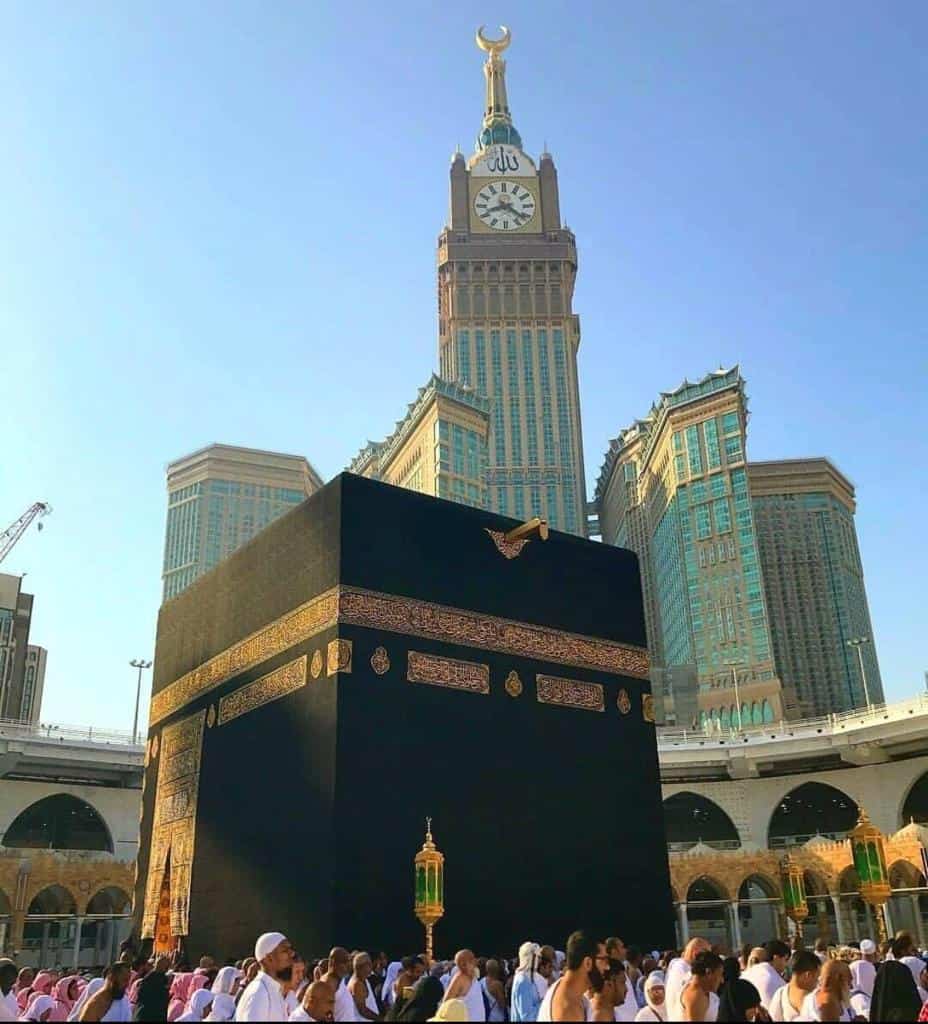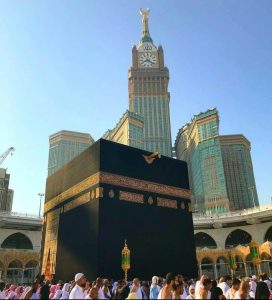Hajj Reflections 1 – Connecting with Allah and the ummah

Makkah Al Mukarramah: Spirit and Fruits of Hajj
Why is Hajj a pillar?
Aim of Hajj:
‘Take your rituals from me.’ (Muslim)
Abu Hurairah (May Allah be pleased with him) reported that the Messenger of Allah (ﷺ) said:
(The reward of Hajj Mabrur (i.e., one accepted) is nothing but Jannah.
(Bukhari and Muslim)
Abu Hurairah (May Allah be pleased with him) reported that the Messenger of Allah (ﷺ) said:
Whoever performs Hajj (pilgrimage) and does not have foul language, nor commits sin, nor disputes unjustly (during Hajj), then he returns from Hajj as pure and free from sins as on the day on which his mother gave birth to him.
(Bukhari and Muslim)
Using foul language, behaving badly towards other people will nullify your Hajj. So controlling the tongue, our gaze and body is a compulsory part of Hajj and not a separate package. Keep this in mind throughout Hajj, wherever you go whether Makkah, Mina, Arafat, Muzdalifah, or Madinah you have to bear this in mind. Anyone can easily be harsh especially when aggravated but being kind is heroic. Harshness is a quality that is disliked. The Prophet (peace be on him) said:
‘The best amongst you is the best is character.’ Narrated by Muslim.
Shaykh Haytham Tamim – Tafseer Class 4th July 2022
- Connection and self-discovery
- Alone yet united
- Sincerity and obedience
- Transformation and tests
- Choosing between your will and Allah’s
- Waiting, being and having nothing
- Focus and forgiveness
- Emerging from humiliation
- Goodness from pain
- Have deep trust
Recommended Posts

The truth is more powerful than lies
July 26, 2024

Global IT outage. When systems go down…
July 19, 2024


